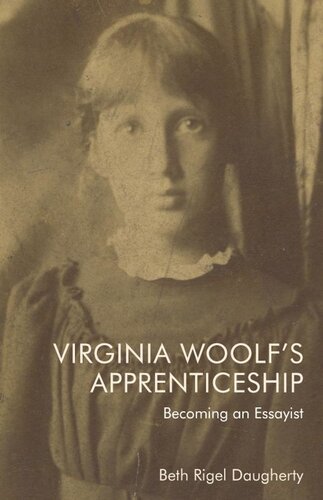

Most ebook files are in PDF format, so you can easily read them using various software such as Foxit Reader or directly on the Google Chrome browser.
Some ebook files are released by publishers in other formats such as .awz, .mobi, .epub, .fb2, etc. You may need to install specific software to read these formats on mobile/PC, such as Calibre.
Please read the tutorial at this link: https://ebookbell.com/faq
We offer FREE conversion to the popular formats you request; however, this may take some time. Therefore, right after payment, please email us, and we will try to provide the service as quickly as possible.
For some exceptional file formats or broken links (if any), please refrain from opening any disputes. Instead, email us first, and we will try to assist within a maximum of 6 hours.
EbookBell Team

4.1
20 reviewsThis study takes up Woolf’s challenge to probe the relationship between education and work, specifically her education and her work as an essayist. It expands her education beyond her father’s library to include not only a broader examination of her homeschooling but also her teaching at Morley College and her early book reviewing. It places Virginia Stephen’s learning in the historical and cultural contexts of education for women, the working classes and writers in the late nineteenth and early twentieth century.
Weaving together Virginia Stephen’s homeschooling, her teaching and her writing for the newspapers, Beth Rigel Daugherty demonstrates how these three strands shape Virginia Woolf’s essay persona, her essays and her relationship with her readers. She also shows why Virginia Stephen’s apprenticeship compels Virginia Woolf to become a pedagogical essayist. The volume publishes two holograph draft lectures by Virginia Stephen for the first time and mines rarely used archival materials. It also includes five appendices, one detailing Virginia Stephen’s library and another her apprenticeship essays.
This is the first in a two-volume study of Virginia Woolf’s essays that analyses Virginia Stephen’s development and Virginia Woolf’s achievements as an essay writer.